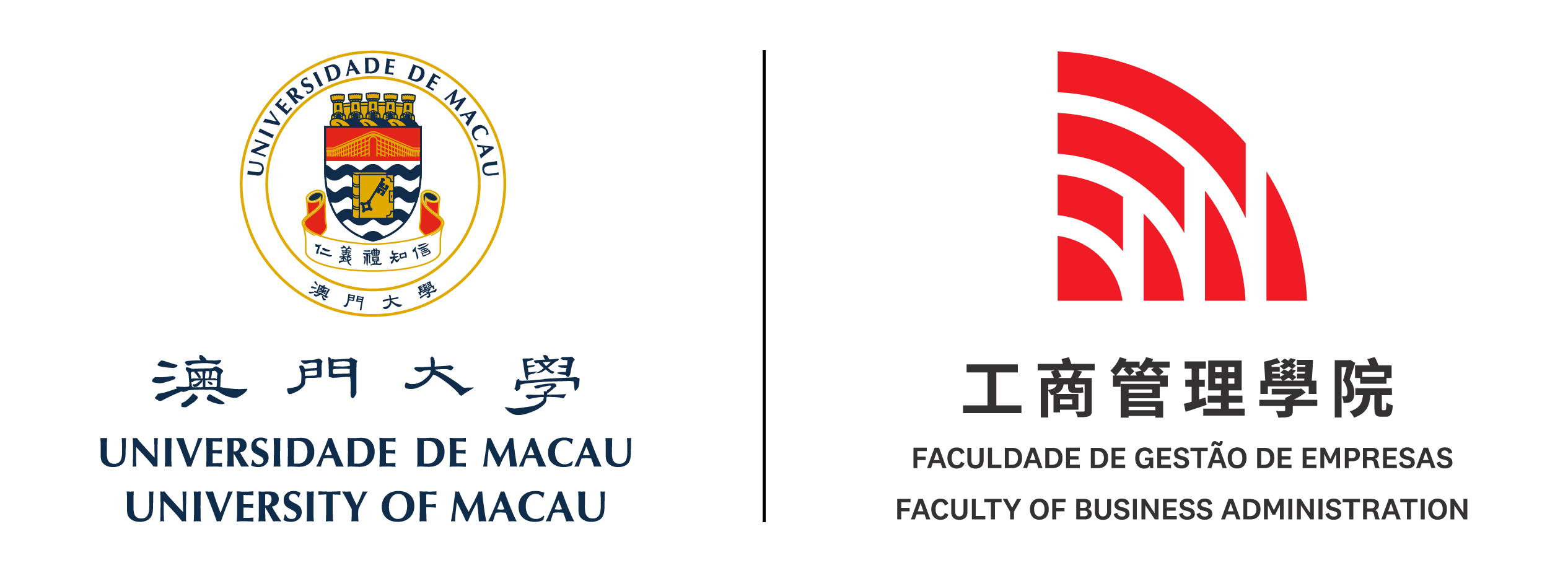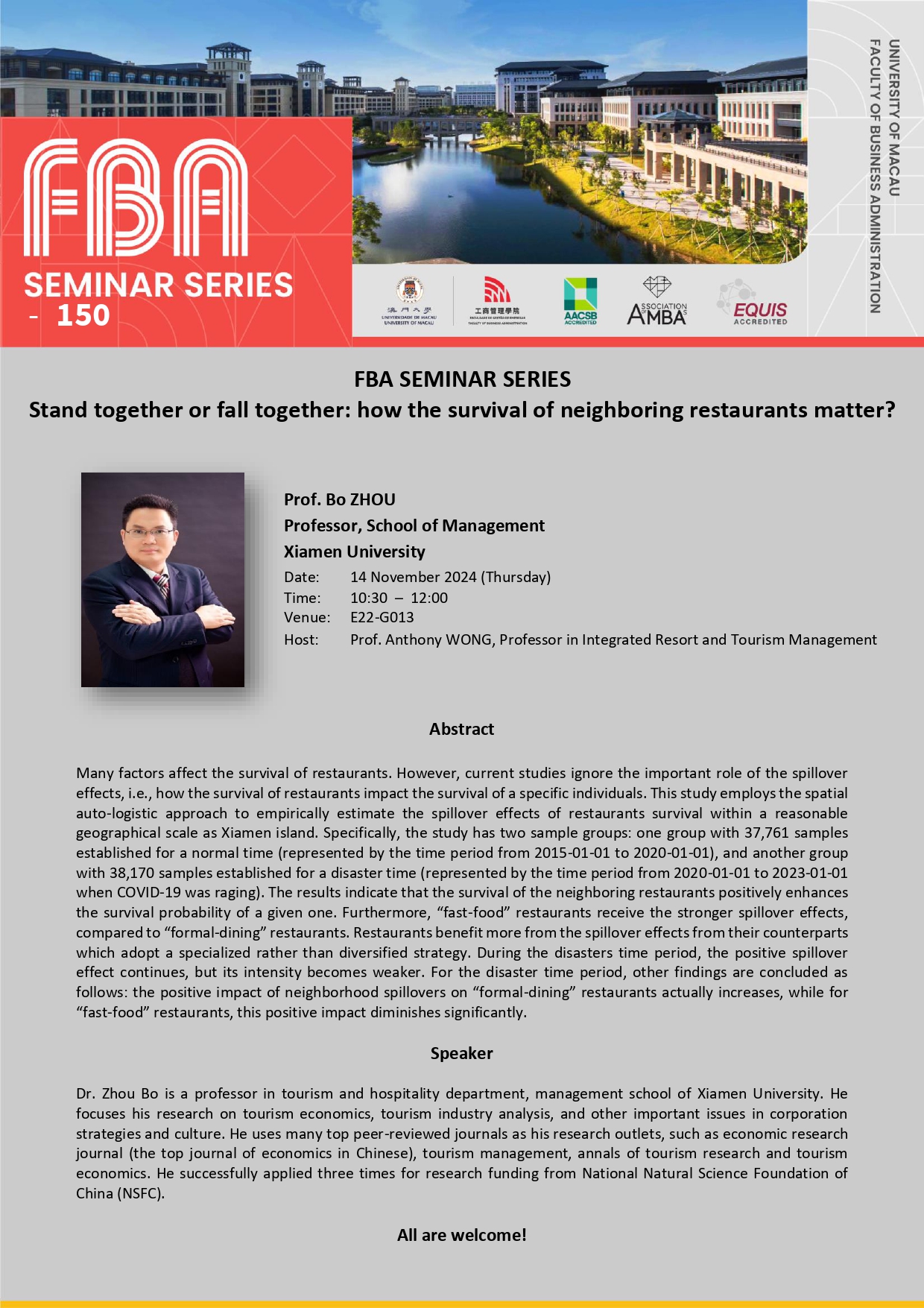Stand together or fall together: how the survival of neighboring restaurants matter?
Prof. Bo ZHOU
Professor, School of Management
Xiamen University
Date: 14 November 2024 (Thursday)
Time: 10:30-12:00
Venue: E22-G013
Host: Prof. Anthony WONG, Professor in Integrated Resort and Tourism Management
Abstract
Many factors affect the survival of restaurants. However, current studies ignore the important role of the spillover effects, i.e., how the survival of restaurants impact the survival of a specific individuals. This study employs the spatial auto-logistic approach to empirically estimate the spillover effects of restaurants survival within a reasonable geographical scale as Xiamen island. Specifically, the study has two sample groups: one group with 37,761 samples established for a normal time (represented by the time period from 2015-01-01 to 2020-01-01), and another group with 38,170 samples established for a disaster time (represented by the time period from 2020-01-01 to 2023-01-01 when COVID-19 was raging). The results indicate that the survival of the neighboring restaurants positively enhances the survival probability of a given one. Furthermore, “fast-food” restaurants receive the stronger spillover effects, compared to “formal-dining” restaurants. Restaurants benefit more from the spillover effects from their counterparts which adopt a specialized rather than diversified strategy. During the disasters time period, the positive spillover effect continues, but its intensity becomes weaker. For the disaster time period, other findings are concluded as follows: the positive impact of neighborhood spillovers on “formal-dining” restaurants actually increases, while for “fast-food” restaurants, this positive impact diminishes significantly.
Speaker
Dr. Zhou Bo is a professor in tourism and hospitality department, management school of Xiamen University. He focuses his research on tourism economics, tourism industry analysis, and other important issues in corporation strategies and culture. He uses many top peer-reviewed journals as his research outlets, such as economic research journal (the top journal of economics in Chinese), tourism management, annals of tourism research and tourism economics. He successfully applied three times for research funding from National Natural Science Foundation of China (NSFC).
All are welcome!


